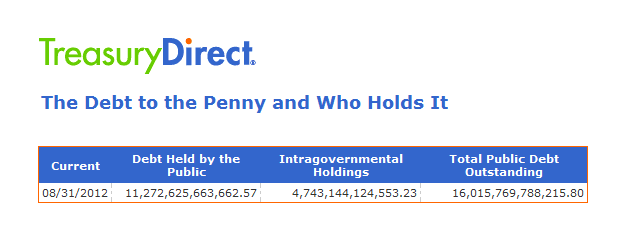GreatDay
Wasn't it?
- Aug 21, 2012
- 436
- 37
- 16
Follow along with the video below to see how to install our site as a web app on your home screen.

Note: This feature currently requires accessing the site using the built-in Safari browser.
Yup. You have it. And, since the great repub recession of 2008, repubs have filibustered, or later, when they had the house, refused every effort of the Pres to stimulate the economy.
In 1993 the Democrats passed a budget plan that led to a balanced budget without a single Republican vote, here is the proof:
“The most recent projections from OMB and CBO indicate that, if current policies remain in place, the total unified surplus will reach about $800 billion in fiscal year 2010, including an on-budget surplus of almost $500 billion. Moreover, the admittedly quite uncertain long-term budget exercises released by the CBO last October maintain an implicit on-budget surplus under baseline assumptions well past 2030 despite the budgetary pressures from the aging of the baby-boom generation, especially on the major health programs.
These most recent projections, granted their tentativeness, nonetheless make clear that the highly desirable goal of paying off the federal debt is in reach and, indeed, would occur well before the end of the decade under baseline assumptions. This is in marked contrast to the perception of a year ago, when the elimination of the debt did not appear likely until the next decade. But continuing to run surpluses beyond the point at which we reach zero or near-zero federal debt brings to center stage the critical longer-term fiscal policy issue of whether the federal government should accumulate large quantities of private (more technically, nonfederal) assets.
At zero debt, the continuing unified budget surpluses now projected under current law imply a major accumulation of private assets by the federal government. Such an accumulation would make the federal government a significant factor in our nation's capital markets and would risk significant distortion in the allocation of capital to its most productive uses. Such a distortion could be quite costly, as it is our extraordinarily effective allocation process that has enabled such impressive increases in productivity and standards of living despite a relatively low domestic saving rate.”
“Returning to the broader fiscal picture, I continue to believe, as I have testified previously, that all else being equal, a declining level of federal debt is desirable because it holds down long-term real interest rates, thereby lowering the cost of capital and elevating private investment. The rapid capital deepening that has occurred in the U.S. economy in recent years is a testament to these benefits. But the sequence of upward revisions to the budget surplus projections for several years now has reshaped the choices and opportunities before us.
Indeed, in almost any credible baseline scenario, short of a major and prolonged economic contraction, the full benefits of debt reduction are now achieved well before the end of this decade--a prospect that did not seem reasonable only a year or even six months ago. Thus, the emerging key fiscal policy need is now to address the implications of maintaining surpluses beyond the point at which publicly held debt is effectively eliminated.”
Testimony of Chairman Alan Greenspan
Current fiscal issues
Before the Committee on the Budget, U.S. House of Representatives
March 2, 2001
and the tech bubble burst!!
And then we got attacked.
and the tech bubble burst!!
And then we got attacked.
Republicans want to make debt illegal once and forever. Liberals exist to buy votes with promises of more and more welfare entitlements so of course are opposed to the Republican proposal.
and the tech bubble burst!!And then we got attacked.
Republicans want to make debt illegal once and forever. Liberals exist to buy votes with promises of more and more welfare entitlements so of course are opposed to the Republican proposal.
Ooohhhh!
It was the "Tech Bubble" that caused two unpaid for wars.
refused every effort to stimulate the economy.
Since 1946 democrats have controlled the government in part or whole for 60+ years
they dropped the A-bomb
They have expanded the welfare system to a point that it makes for a comfortable life style.
A democrat signed the assault weapons ban
A democrats signed NAFTA
A democrat took money from social security to make it look like there was a surpplus
A democrat gave us a recession
A democrat lied his way to election but continued Bush policy
A democrat extended and expand portions of the Patriot act
A democrat signed into law the NDAA 2012 indefinite detention
A democrat gave aid to Americas enemy in Libya
A democrat by passed congress and gave amnesty to illegals
A democrat refused to assist border states with illegals crossing the border
Record number of Americans on food stamps 64 million last checked
42 straight months of Unemployment 8% or higher
Americas AAA credit rating DOWN GRADED
Even though the recession was over in 2009 things have not gotten better in the industry's that drive the economy Manufacturing and Construction
I haven't seen gas below 3.00 a gallon in North Carolina since obama's first year in office.
American tax payers lost money on a democrats bailout to unions and CEO'S that supported Democrats
American tax payer lost money on bankrupt green energy company's
A democrat allowed firearms into the hands of Mexican terrorists
A democrat did back door deals to create the biggest tax on the middle class in Americas history called obamatax.
Here's your 'Debt Clock'--


and the tech bubble burst!!
And then we got attacked.
[
Republicans want to make debt illegal once and forever. Liberals exist to buy votes with promises of more and more welfare entitlements so of course are opposed to the Republican proposal.